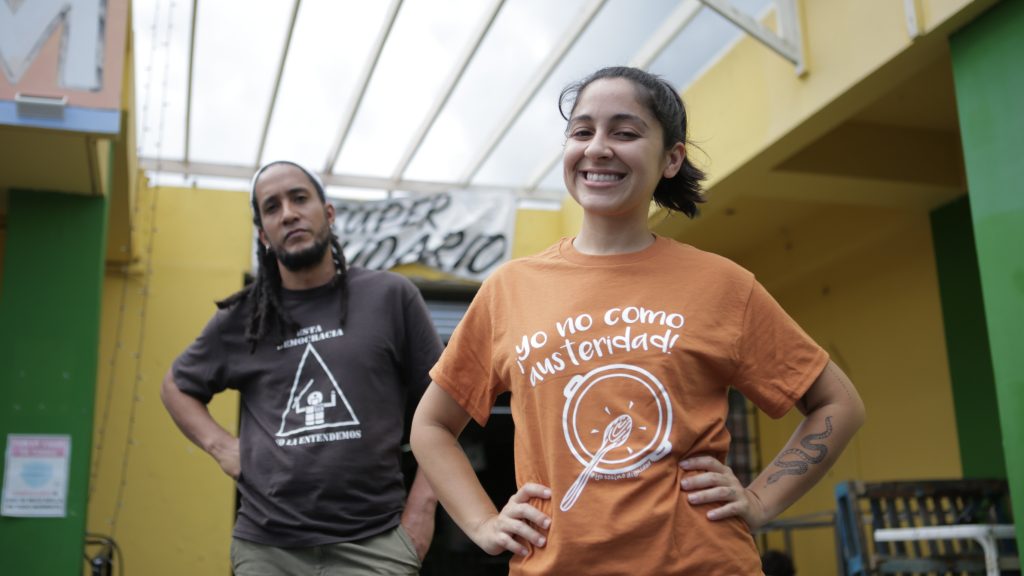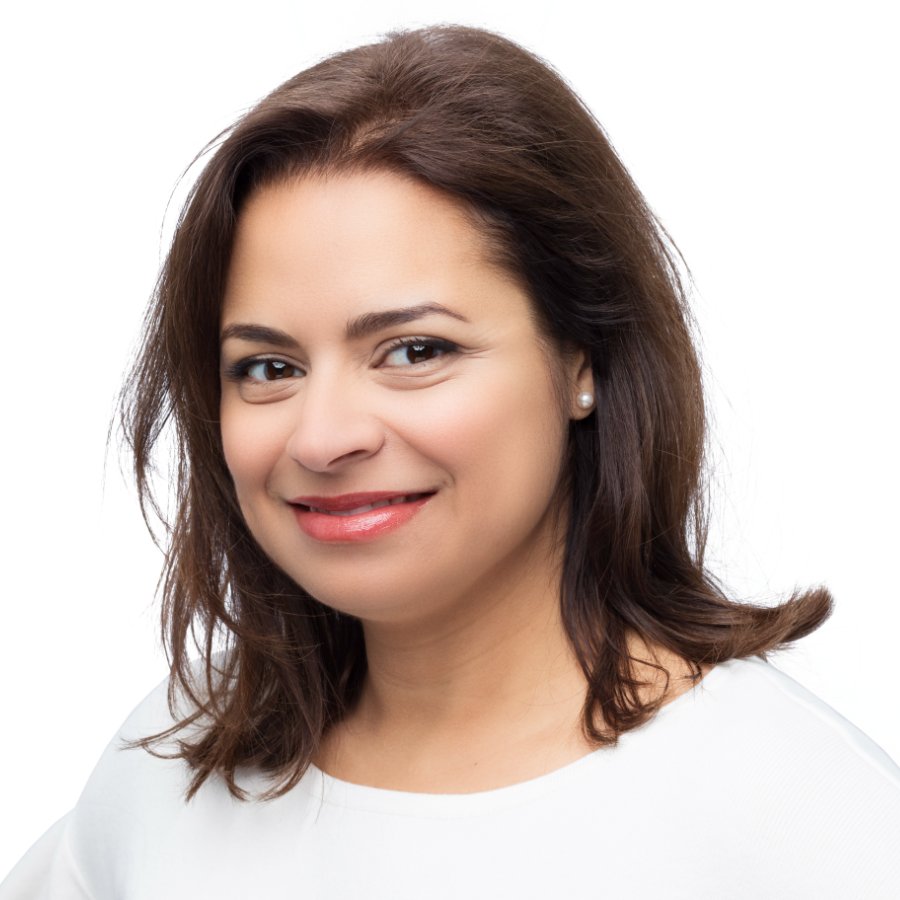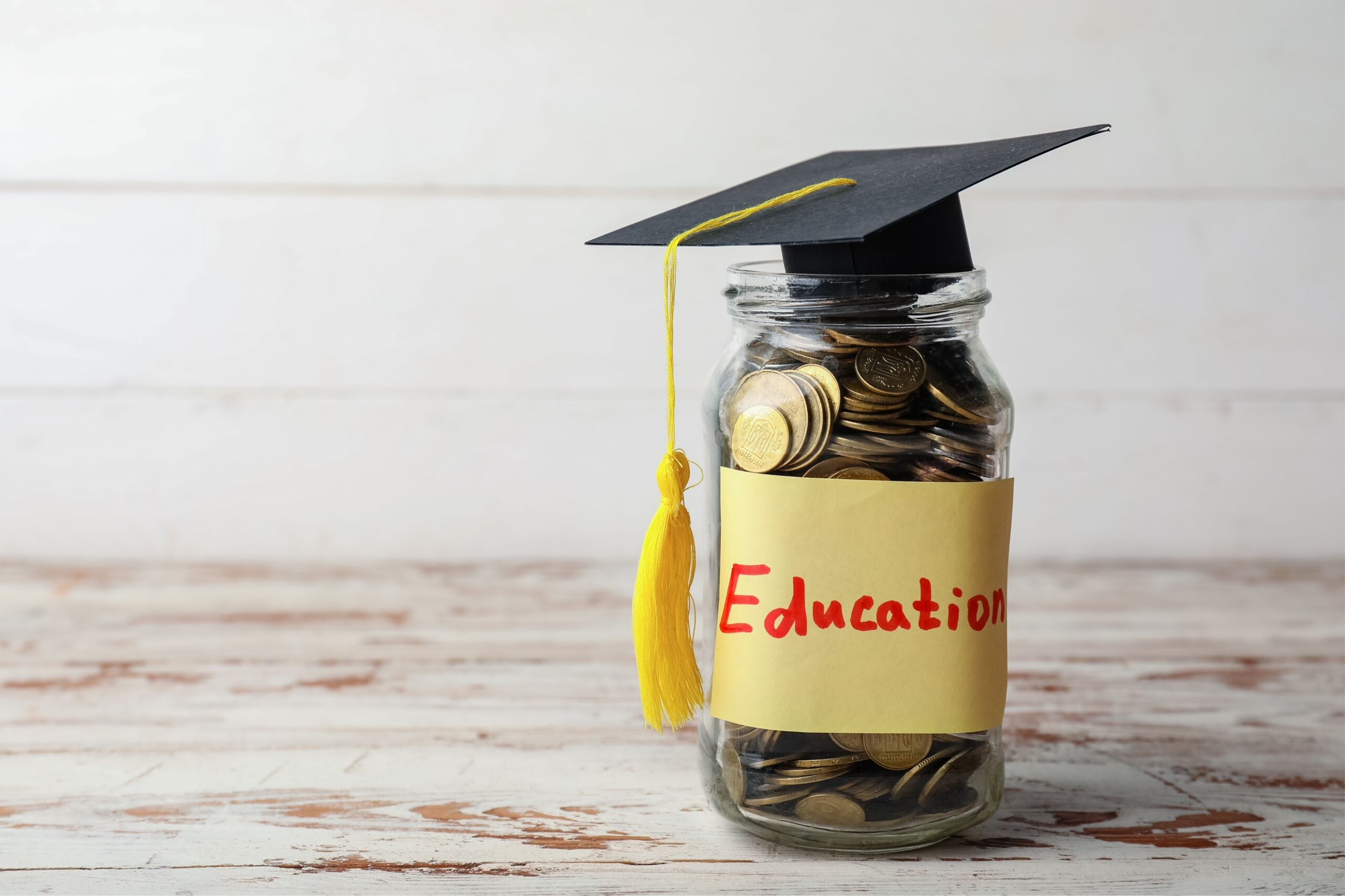Hispanics represented about 14.6 percent of Rhode Island’s total population in 2017. About 38,860 residents across the state identified as Puerto Rican. As many of these residents remain closely connected to the Caribbean island, issues like access to high-quality community services similarly impact these extended communities.
RI Latino News covers the five social determinants of health to highlight how community organizations and services are integral to public health.
This story was supported by the journalism non-profit the Economic Hardship Reporting Project and co-published with The Real News Network/ 9 Millones.
CAGUAS, PR — In front of a mural that reads “Only the people save the people,” Marisel Robles Gutiérrez stood before a group of elderly adults, to make an announcement: the non-profit organization Comedores Sociales had gained ownership of the abandoned property that they occupied in 2017 by negotiating with a real estate investment company.
With a slightly cracked voice and smiling, she said: “We rescued this building… we gave it life, and thanks to all these years, to all the people who have participated,” —she interrupted and placed her hands to her chest— “finally, we can announce today that it is ours.”
Immediately, the twenty or so participants and volunteers of Super Solidario, a grocery store focused on offering affordable food, applauded. The people drumrolled on the table and cheered. The Mutual Aid Center (CAM for its Spanish acronym), which was founded in September 2017 to address hunger in the aftermath of Hurricane Maria, would not be evicted.
“The CAM is ours and it belongs to all of Puerto Rico,” they chanted on February 13, when the feat was announced to the community.
“Achieving this victory was like taking something out of the claws of the vultures and celebrating it,” said Robles Gutiérrez, who joined Comedores Sociales in 2018.
In the aftermath of Hurricane Maria, community groups throughout different parts of Puerto Rico have rescued vacant lands and transformed them into spaces for social and community development. While some, like CAM, have been able to acquire the ownership of the property, others, like the Huerto Comunitario San Mateo del Batatal, remain uncertain about whether they will be able to keep the space they reclaimed.
“It was a space that was totally abandoned, it was even scary. We entered illegally and cleaned it up,” said Arnaldo López López, one of the residents who helped transform the space on Carolina Street in the Santurce neighborhood. The neighbors —who had gone hungry during the Hurricane Maria emergency— worked the land, built wooden beds and began planting. In a short time, papayas, eggplants and broccoli —among other vegetables— sprouted where once there was decay.
“Progress is not just cement, buildings and construction. Progress can be agriculture.”
Arnaldo López López
While the community initially had permission from an owner who inherited the property, its future now rests in the hands of an investment company.
In 2019, PDDK Opportunity Zone Fund LLC purchased properties 1617 and 1619, where the garden was located, for $125,000. It paid almost all of it in cash to the seller, Mayra Franqui Rodriguez, according to the deed of sale.
In several deeds of sales, David Kingsley is listed as the president of the Board of Directors of PDDK Opportunity Zone Fund. The investor, who resides in Manhattan, New York, did not agree to an interview.
Members of the Huerto are negotiating with Kingsley to rent the land for $1 a month, or at least until he decides what to do with the property. Meanwhile, uncertainty is growing among the neighbors, who no longer devote the same amount of time and energy to harvesting in their community garden, but they still hope to collectively buy the property and return the land to its productive days, López López said.
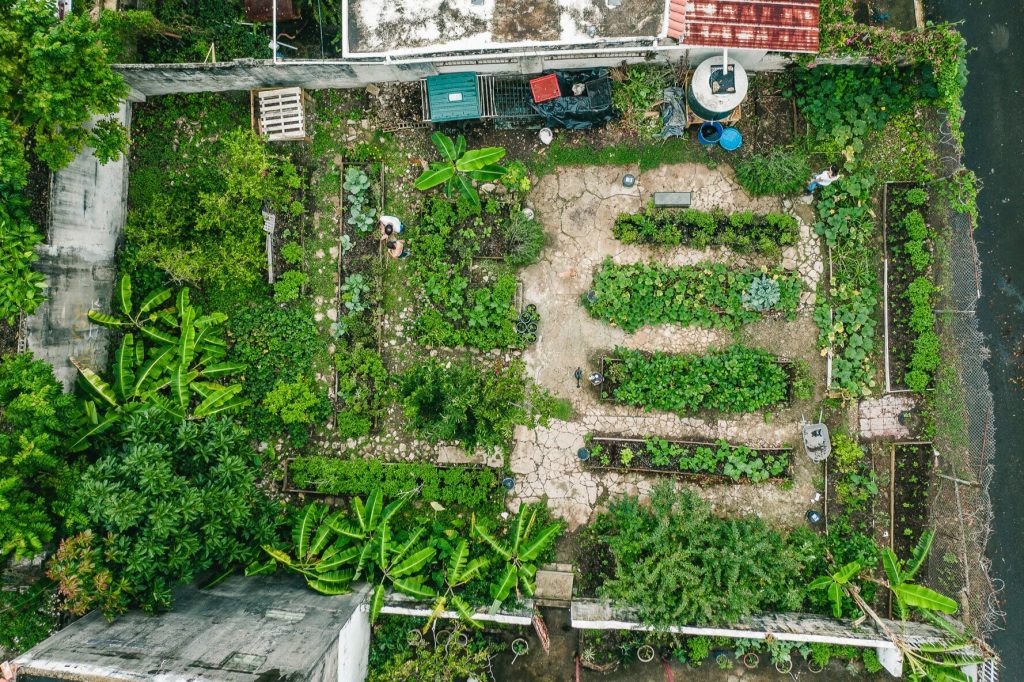
In the case of CAM, MR CTC Caguas acquired the title to the property in 2015. The limited liability company is connected to Morgan Reed PR, according to the State Department’s corporate registry. The property sat abandoned for 7 years, until, in 2022, the corporation threatened to evict Comedores Sociales, according to Robles Gutierrez. “Either you rent it or I’ll have you out in 30 days,” was the ultimatum. The community, which had invested $120,000 in the property, replied that the space belonged to them and began to negotiate.
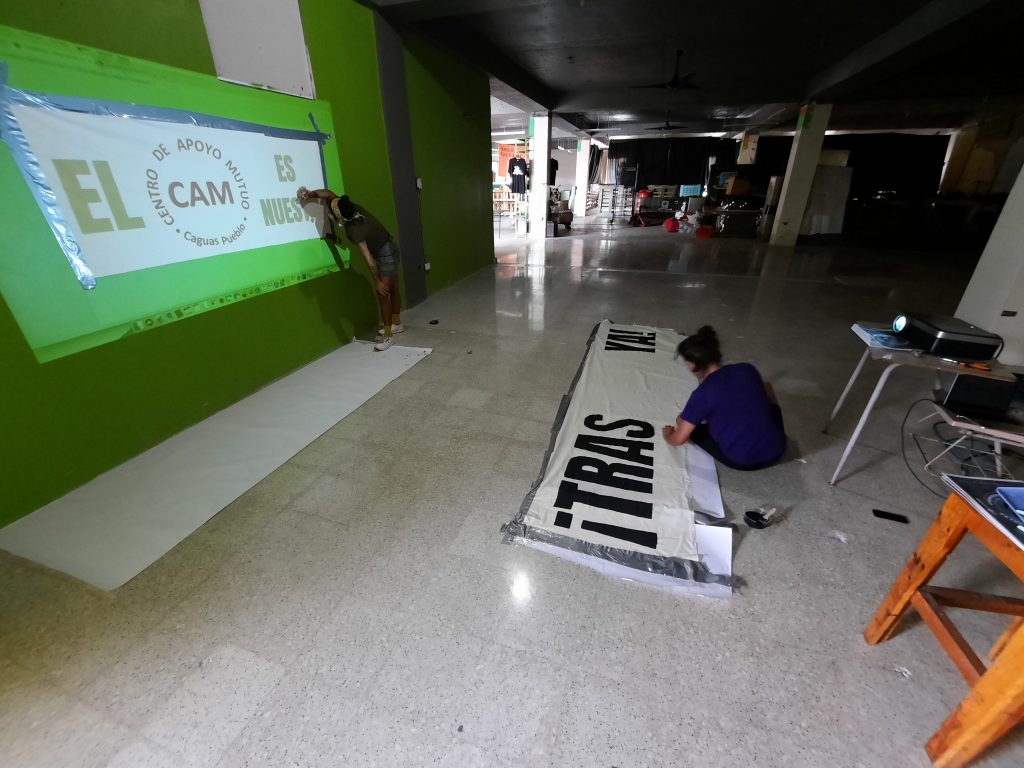
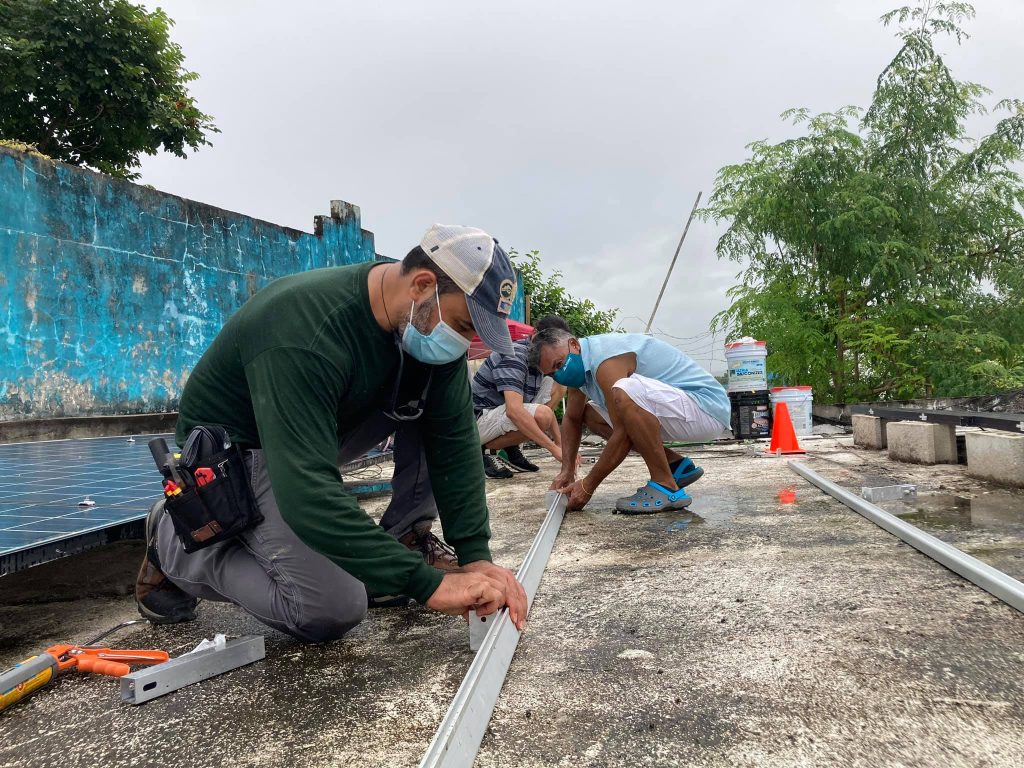
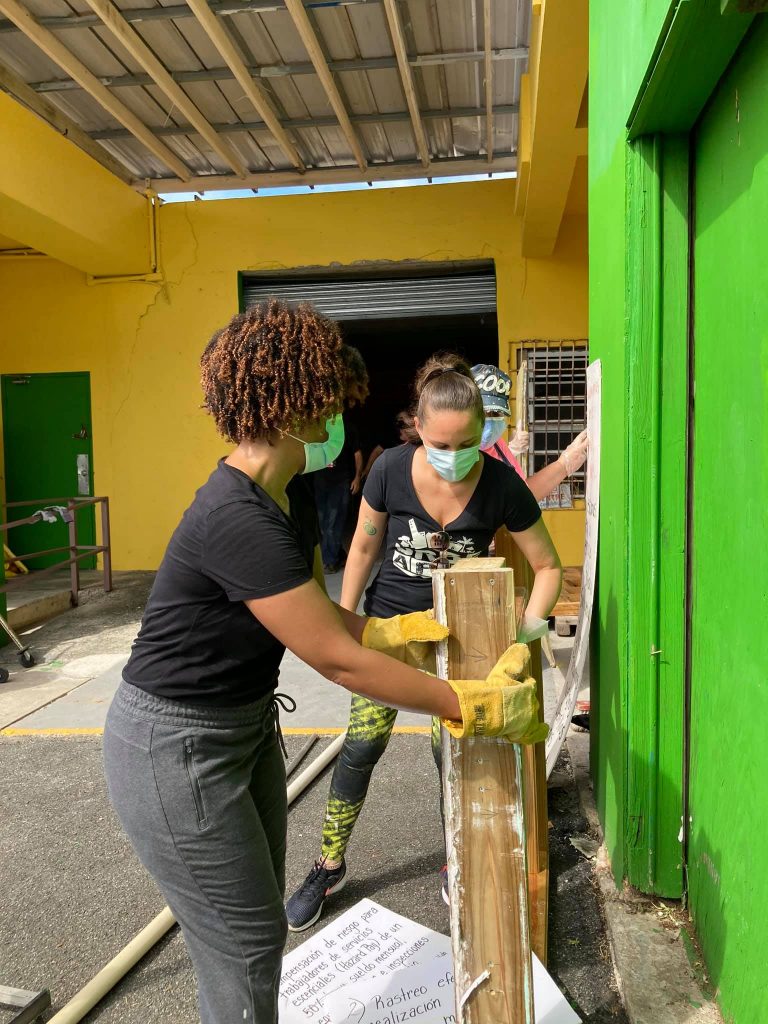
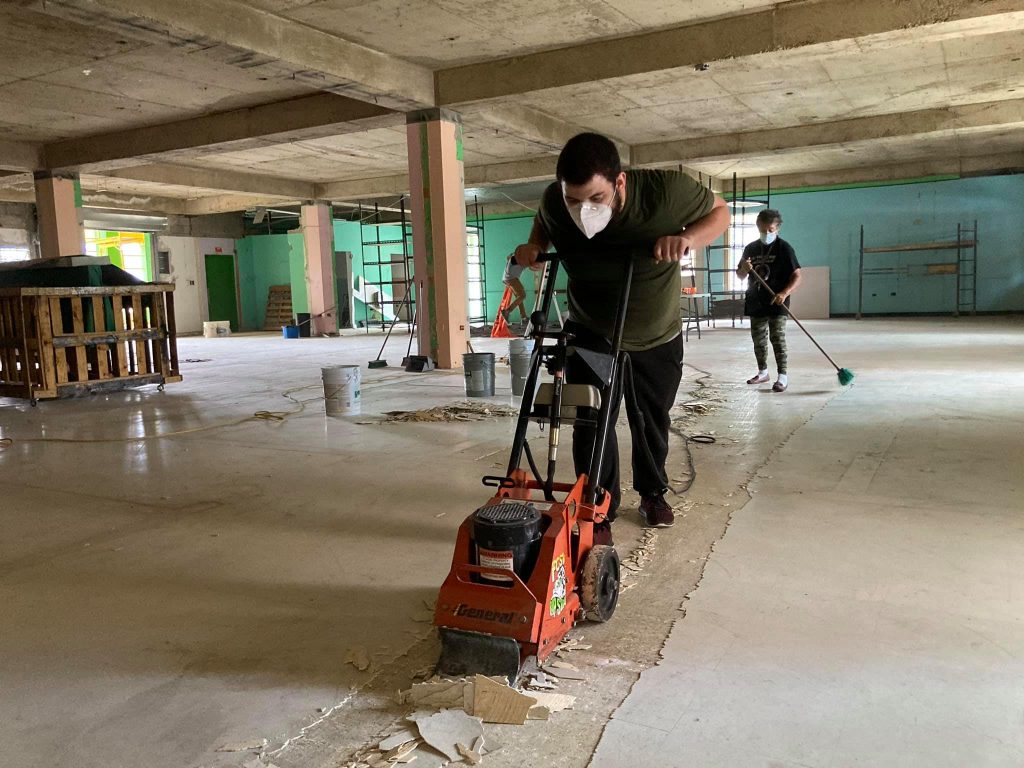
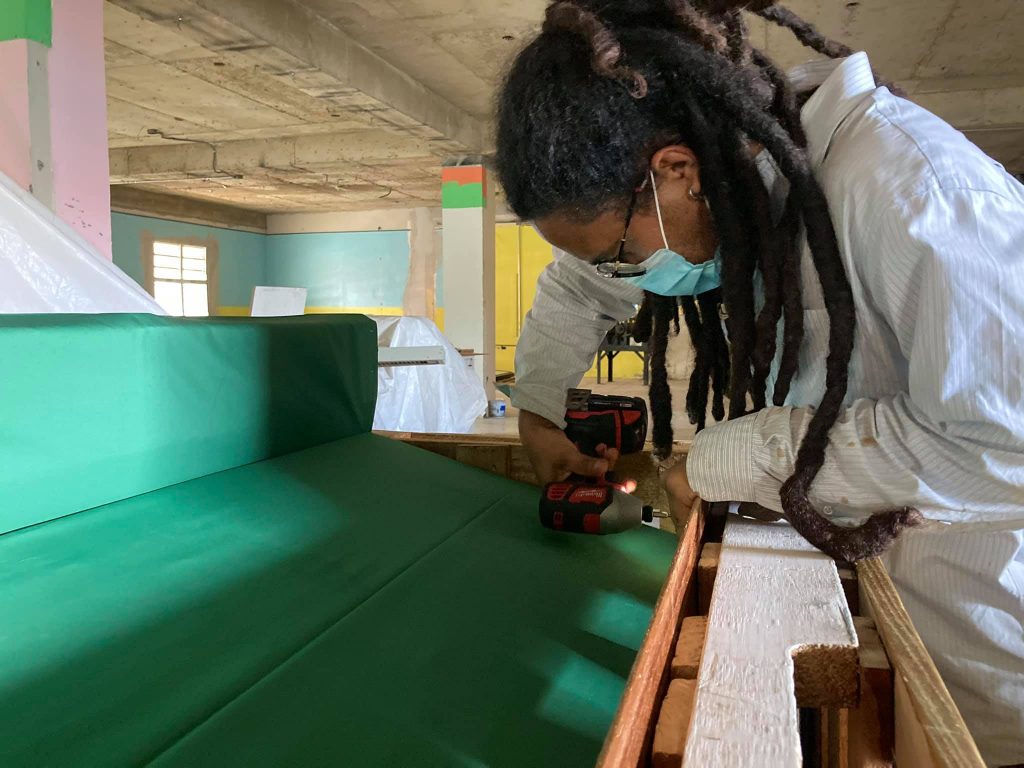
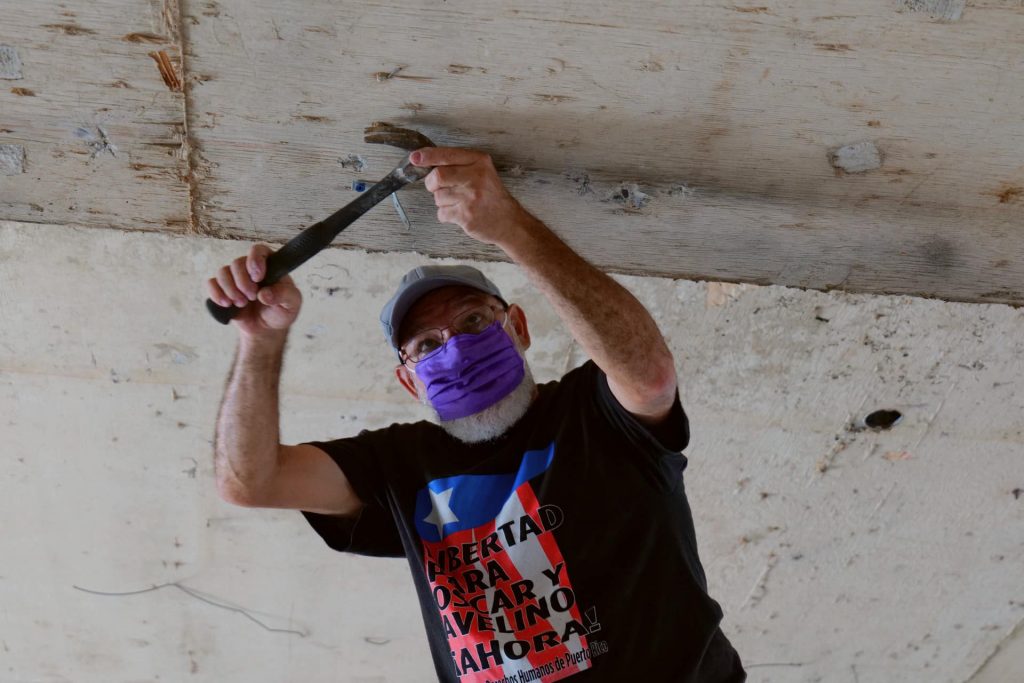
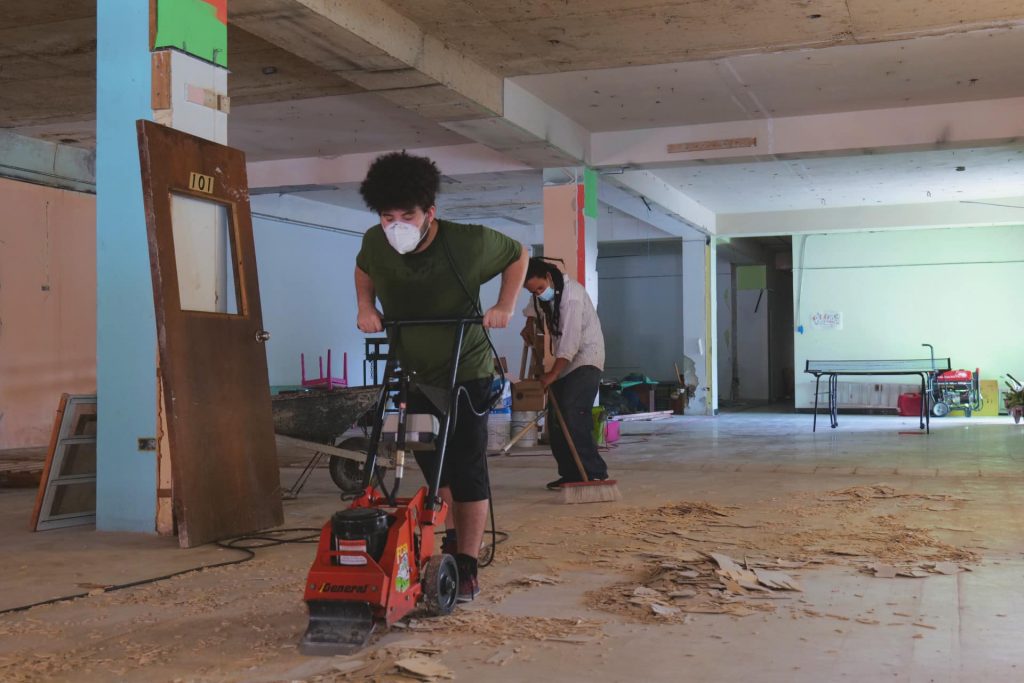
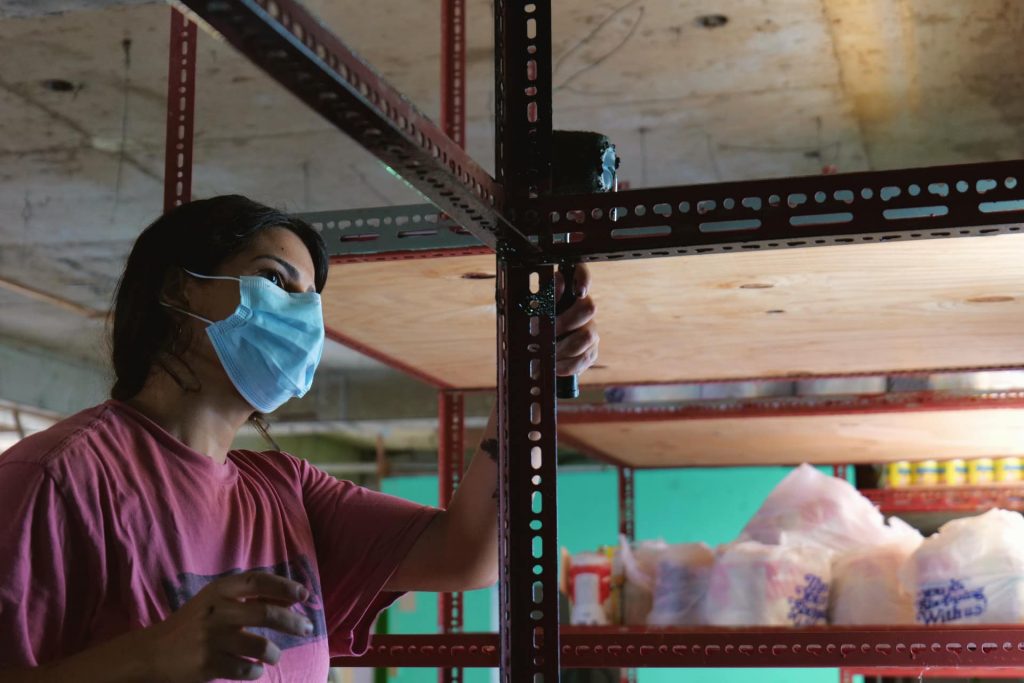
Photo courtesy of Comedores Sociales de Puerto Rico.
Morgan Reed is a real estate investment company that has been expanding its operations in Puerto Rico. One of its executives, Brian Tenenbaum, applied for and received the tax decree for foreign investors in December 2014, according to the Department of Economic Development and Commerce’s (DDEC for its Spanish acronym) public database. Tenenbaum did not agree to be interviewed.
Since the administration of former Governor Luis Fortuño created Law 22 of 2012 (now under Law 60), there is a continuous annual increase in the granting of these tax privileges that benefit foreign investors moving to Puerto Rico. With this tax exemption, they pay 0% in capital gains taxes, compared to tax rates of 9 to 33%, paid by residents.
In addition, the government is offering up to 40% in tax credits for those investing in tourism development. Another federal law, approved in 2017, created the Opportunity Zone Program, which grants a full tax exemption on profits produced in low-income communities, if the investment is sustained for 10 years, according to DDEC. The United States Department of the Treasury and the Federal Internal Revenue Service (IRS) declared 98 percent of Puerto Rico an “opportunity zone.”
“These spaces are ours, this territory belongs to us and we are going to develop it as we understand we should develop it,” said Zeus Omar, of Urbe Apie, an organization whose members have occupied 8 abandoned spaces in the urban center of Caguas, and have already identified a couple dozen additional spaces they want to acquire by 2030.
“If we don’t rescue our spaces, who is going to do it? The ones who are doing it [now] the ones from abroad… and then, they make a lot of Airbnbs and make rent very expensive in the community and people will not be able to pay it, they will have to leave,” concluded Omar.
Bianca Graulau directed the video report that was adapted to text by Laura Quintero. Camille Padilla Dalmau and proofreader Luis Alfaro of 9 Millones contributed to the written version of this report.
Publisher’s Notes: RI Latino News partners with 9 Millones in best serving Rhode Island’s diverse Hispanic/Latino communities.
